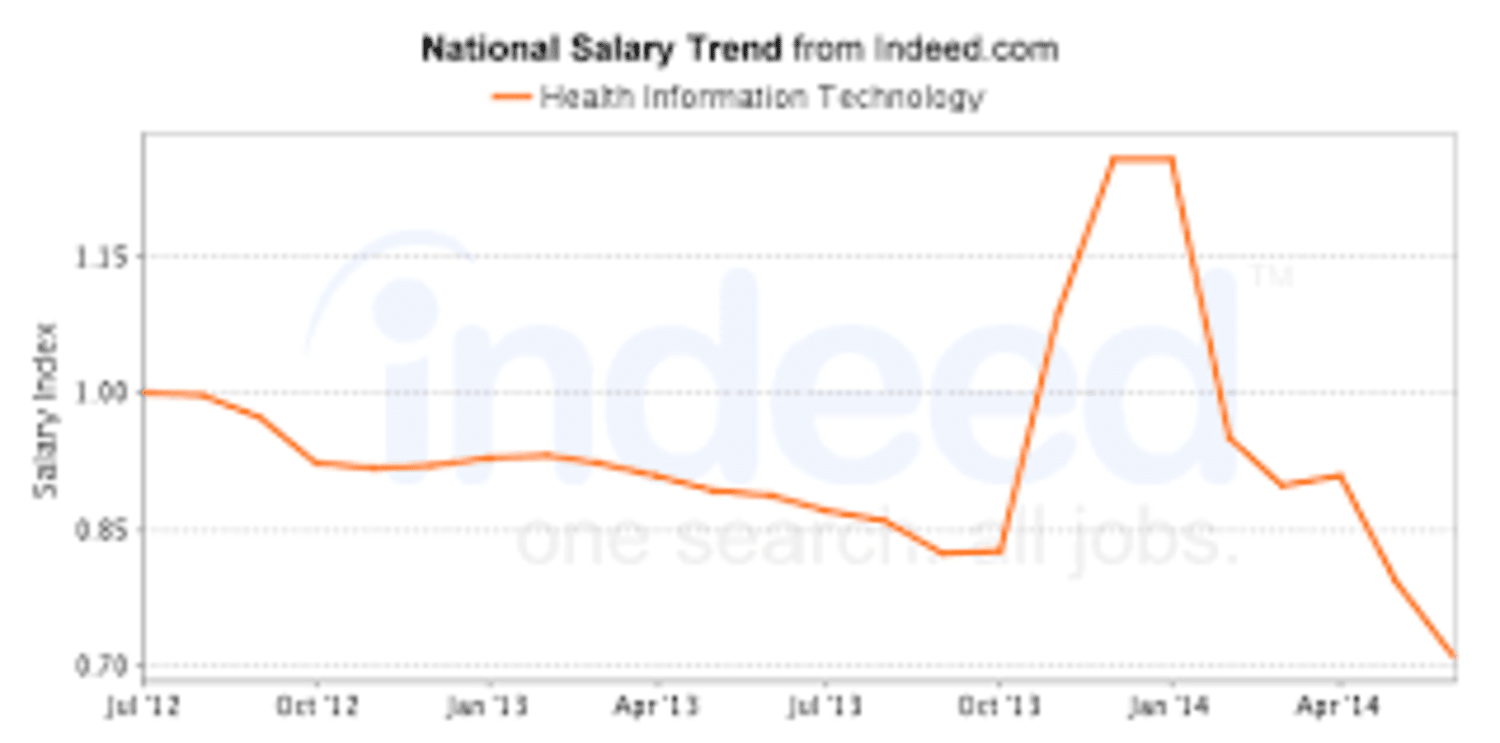Health information technology (HIM) jobs are a growing field that offer excellent earning potential. According to the U.S. Bureau of Labor Statistics, health information technologists and medical registrars earned median salaries of $55,560 in 2021.
What Is a Health Information Technologist?
With the healthcare industry’s adoption of mass electronic medical records, there is a need for skilled workers on both sides of the data equation. The intersection of healthcare and technology has led to the growth of a new career path: health information technology (HIT).
A health information technician works in a combination of positions, as both medical records clerks and health information technologists. They are primarily responsible for gathering, organizing and filing patient data into digital storage systems. They also ensure compliance with government and hospital policies regarding patient privacy.
In addition to completing these duties, a health information technician may also perform database design and implementation services. They must have a strong understanding of computer software and the healthcare industry’s terminology in order to effectively work with patient records.
These professionals are found throughout the industry, including hospitals, physician offices and specialty care facilities. Some health information technicians may even work for organizations that do not provide direct healthcare services, such as consulting firms and insurance companies.
Regardless of their exact job title, most HIT professionals must be prepared to work in a fast-paced and sometimes stressful environment. They must be able to work on a large volume of information in a short amount of time and often need to review the same record multiple times. In addition, they may be asked to train healthcare professionals in the use of HIT software.
What Is a Health Information Technologist’s Job Duties?
Health information technicians oversee the management of medical records at hospitals, private practices, healthcare clinics and other facilities. They work to keep accurate and updated files that are useful for doctors when preparing treatment plans, as well as in filing insurance claims. The job also includes coding data, assigning diagnosis groups and maintaining hard copy and digital storage systems for patient medical records. Health information technology workers must adhere to government and medical confidentiality rules.
Some health information technologist jobs require a bachelor’s degree, while others may only need an associate degree or a postsecondary certificate. Many programs, such as the University of Wisconsin’s online Bachelor of Science in Health Informatics, offer a combination of specialized computer skills and knowledge of healthcare information technology and systems, helping you get started in this exciting career.
Other positions in the field require more specialized expertise, like that of a clinical documentation specialist or a medical coder. These roles focus on specific areas of health information and provide more in-depth work that could include analyzing healthcare costs or suggesting procedural improvements based on data analysis.
Regardless of the position, all health information technologist jobs require an analytical and detail-oriented mindset, along with the ability to communicate effectively both verbally and in writing. They are in high demand, as the aging baby boomer population drives overall healthcare demand.
What Is a Health Information Technologist’s Salary?
Several factors influence the salary of a health information technology worker. These include the job title and responsibilities, location, employment setting, and education. In general, professionals with advanced degrees have higher salaries than those with less-advanced credentials.
The job outlook for healthcare information technology jobs is positive. The BLS projects that the number of positions will increase by 17% between 2021 and 2031. This is much faster than the average rate of job growth for all careers. This is due to the need for healthcare organizations to digitize their operations. This requires that they have IT staff with both IT and healthcare knowledge to develop, implement, and optimize electronic data management systems.
Professionals with an associate degree in health information technology may work as medical coders, retrieving and organizing patient records for nurses and doctors. Those with a bachelor’s degree can work as health information managers, or clinical informatics managers. These roles combine healthcare and IT, and require leadership and managerial skills.
The salary for a health information technologist in different regions can vary greatly, depending on a number of factors. Some of these factors include cost of living, population density, and the number of medical facilities in the area. Workers in larger cities often have the best earning potential, as employers are more likely to pay higher salaries.
What Is a Health Information Technologist’s Career Path?
The health information technology field is a blend of computer science and medicine, serving as a critical link between patients, medical providers, and those responsible for insurance reimbursement. For those interested in a career in this area, earning a bachelor’s degree can help them secure entry-level jobs. Those seeking greater upward mobility can complete a master’s degree in healthcare informatics or health information management.
The responsibilities of a health information technologist require attention to detail and excellent administrative skills. Unlike many healthcare workers, health information technologists do not work directly with patients. In fact, they spend most of their time in the office, making coding and database decisions. Those working in this field often need to follow strict government and institutional guidelines.
Those with an associate degree can seek careers in medical coding or health records management. These roles involve reviewing and translating physicians’ diagnoses and procedures into coded terms. These professionals are also responsible for designing, updating and implementing hard copy and digital storage systems for patient information.
Those with a bachelor’s degree can find careers in a variety of areas, from assessing medical claims to managing computer security at hospitals and other healthcare organizations. These positions require strong analytical thinking and the ability to work as a team player in an environment where data is constantly changing.

